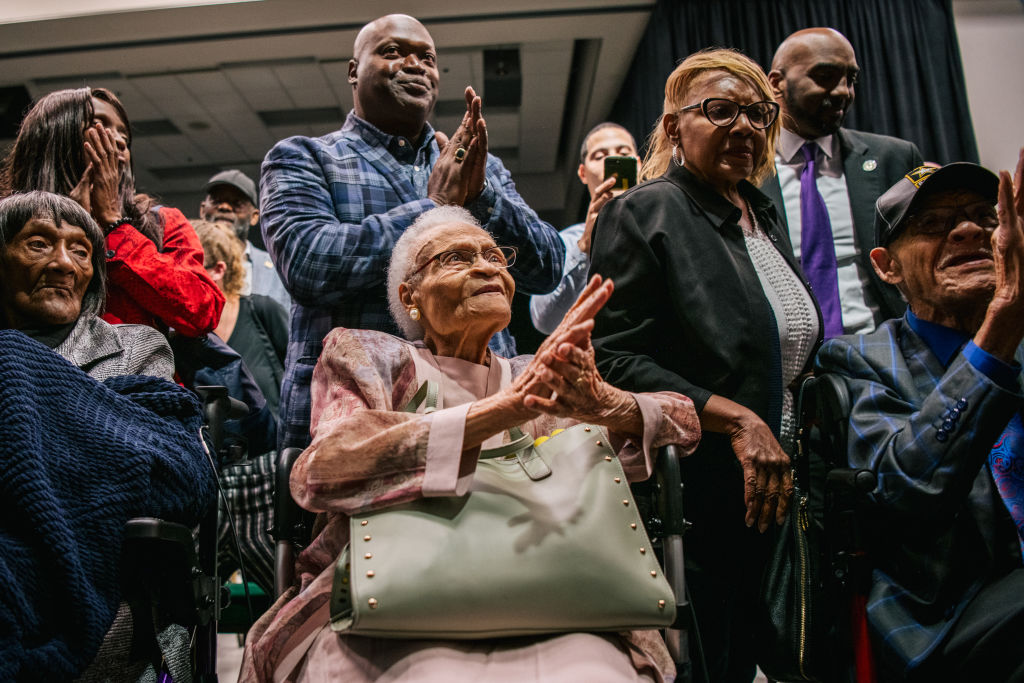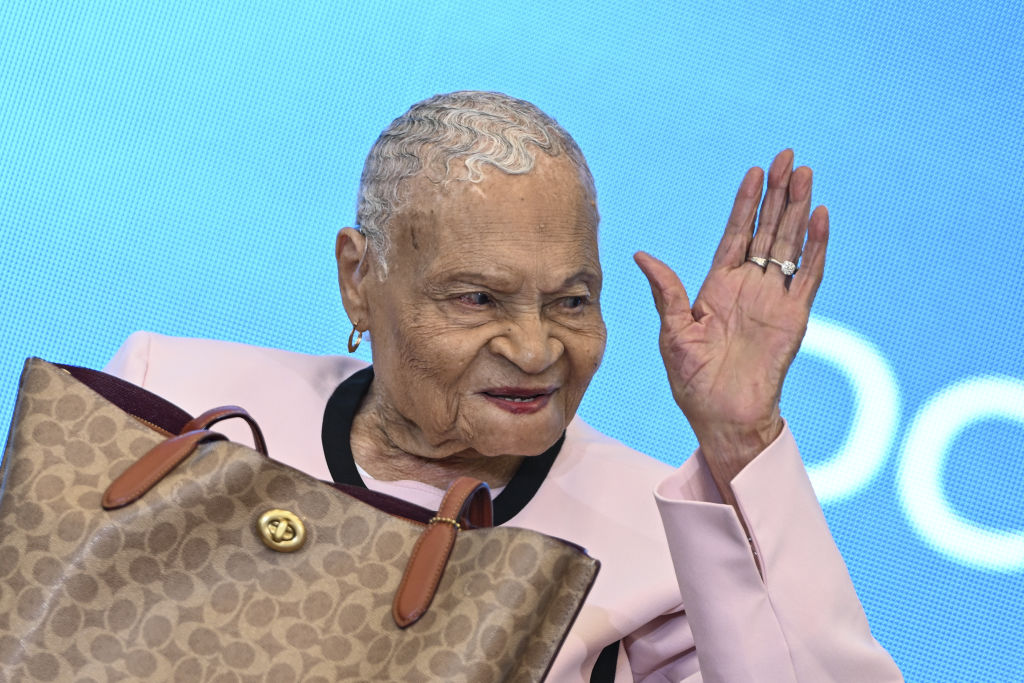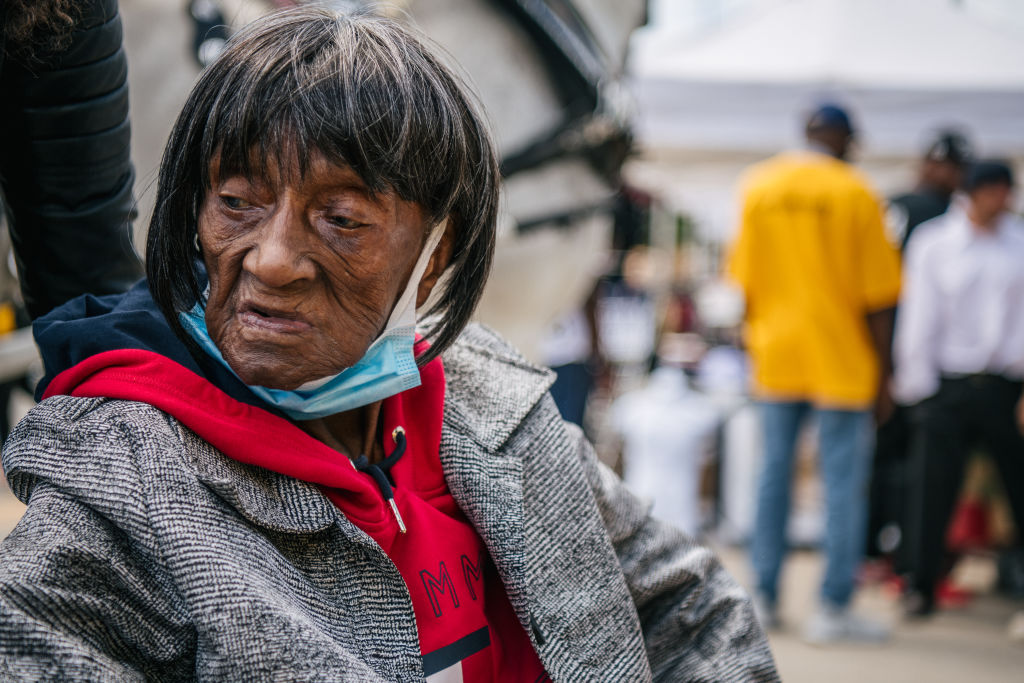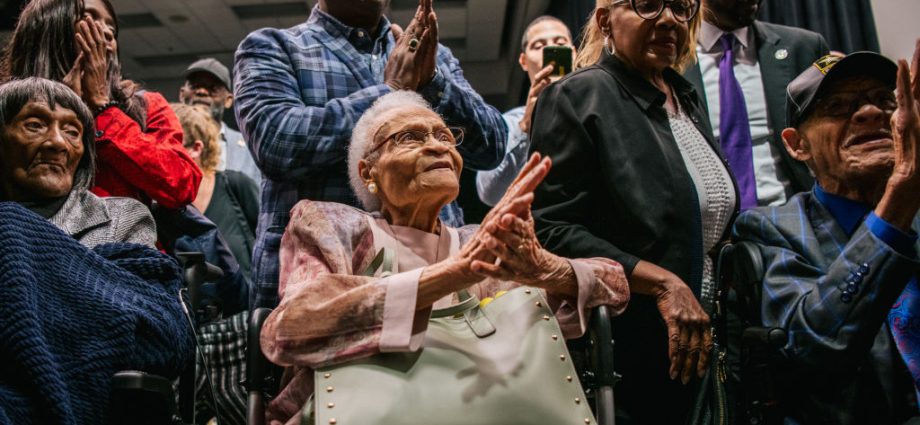
Lessie Benningfield Randle, Viola Ford Fletcher, the late Hughes Van Ellis/ Source: Brandon Bell / Getty
Imagine looking the only survivors of one of the worst and most notorious race massacres in America’s history right in the eye and telling them they aren’t owed anything for what they suffered. Imagine saying that to Black people who are seeking reparations, not as the descendants of the people who suffered, but as the sufferers themselves.
That is exactly what has been happening to 109-year-olds Viola Ford Fletcher and Lessie Benningfield Randle and the estate of Fletcher’s late brother Hughes Van Ellis who died at 102. All three Black American citizens were in-person victims of the 1921 Tulsa Race Massacre, which brutally killed hundreds of Black people and resulted in the destruction of Black Wall Street.

Viola Ford Fletcher/ Source: Anadolu / Getty

Lessie Benningfield Randle/ Source: Brandon Bell / Getty
Today, April 2, the Oklahoma Supreme Court will hear oral arguments not on whether or not the Tulsa survivors will receive reparations, but whether they even have the right to go to trial to argue for reparations.
“We are grateful that our now-weary bodies have held on long enough to witness an America, and an Oklahoma, that provides Race Massacre survivors with the opportunity to access the legal system,” Randle and Fletcher said in a joint statement. “Many have come before us who have knocked and banged on the courthouse doors only to be turned around or never let through the door. Now, our pursuit of justice rests in the hands of our Oklahoma Supreme Court. They have the power to open the doors of justice and give us the opportunity to prove our case.”
Randle and Fletcher should be spending their twilight years relaxing in comfort and enjoying time with their families. Instead, they’re “grateful” for still being alive to endure court battles in an uphill effort to convince Tulsa (and by extension, America) that it needs to make right the wrong that devastated a thriving Black community, destroyed Black families and took hundreds of Black lives.
In 2022, a Tulsa judge allowed a lawsuit to move forward accusing the city of Tulsa and other related departments of being complicit in the massacre, and that the effects of it are still being felt by the survivors and their families today.
The ladies told CNN that hey’ve argued the damage inflicted during the massacre was a “public nuisance” from the start and are seeking relief from the nuisance as well as to “recover for unjust enrichment” others have gained from the “exploitation of the massacre.”
Generally, a public nuisance is when a person or entity “unreasonably interferes with a right that the general public shares in common,” according to the Legal Information Institute.
However, on Fletcher’s 109 birthday, May 10, 2023, she was back in court fighting a new motion to dismiss the case.
Fletcher told CNN, “I didn’t feel very nice about it.”
“Being there for so many hours, it was really unpleasant but I’m willing to do that again you know,” Fletcher added.
Unfortunately just a few months later, a motion to dismiss the case was granted after the city of Tulsa in part argued “simply being connected to a historical event does not provide a person with unlimited rights to seek compensation” related to the event.
So the families appealed to the Oklahoma Supreme Court, who took up the case in August 2023.
Now, Randle and Fletcher are in the midst of a last ditch effort just to get a chance to argue for reparations once more.
Imagine working this hard at denying justice to direct survivors of horrific crimes and keeping people who are more than a century old fighting for justice. The cruel indifference Tulsa and its legal representation are showing these survivors is indicative of America’s apathy and its refusal to properly atone for its racist, egregiously oppressive, and Black wealth-stiffling past. And that’s the same America certain Americans want to make great again.
Source link

